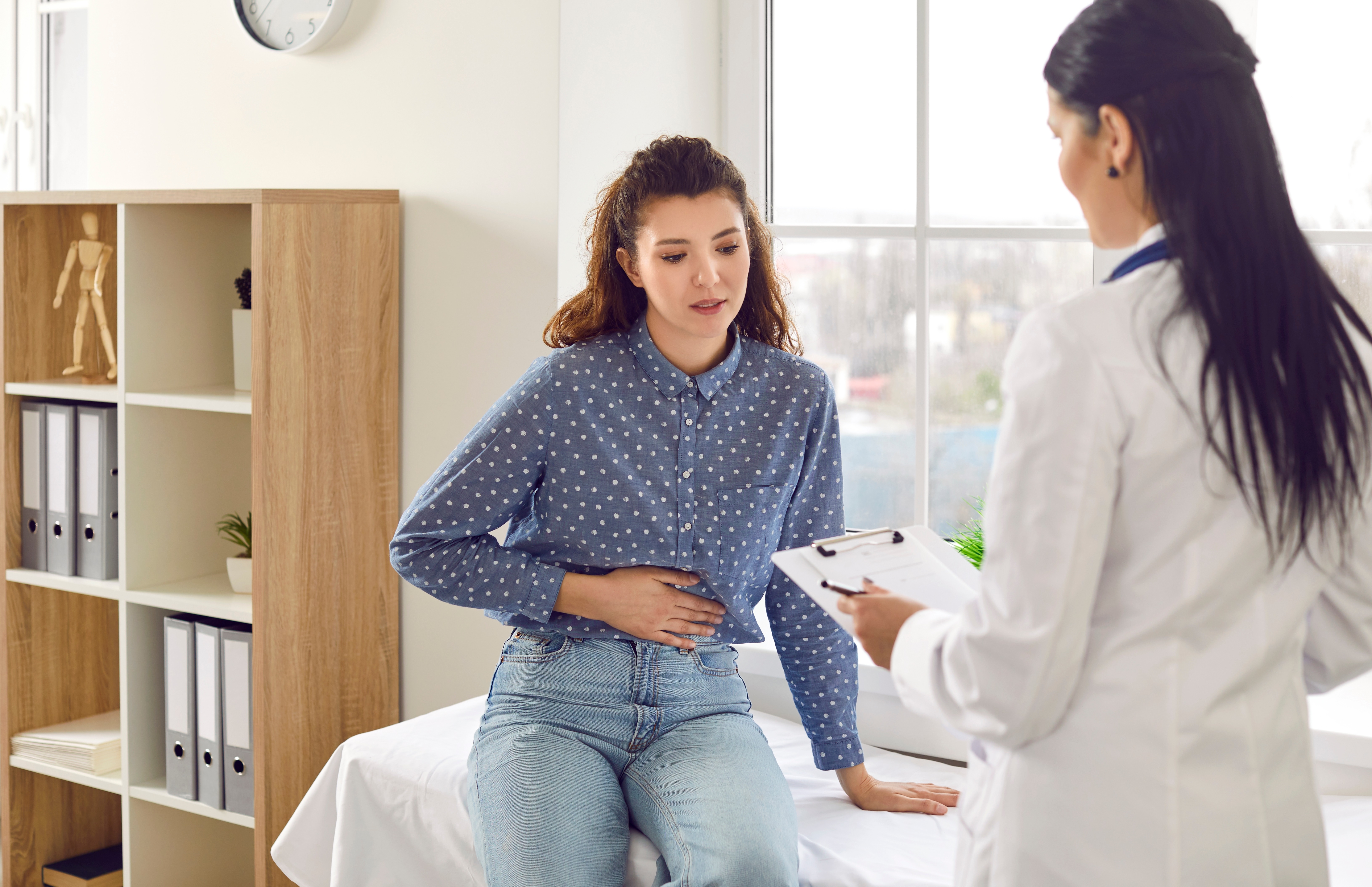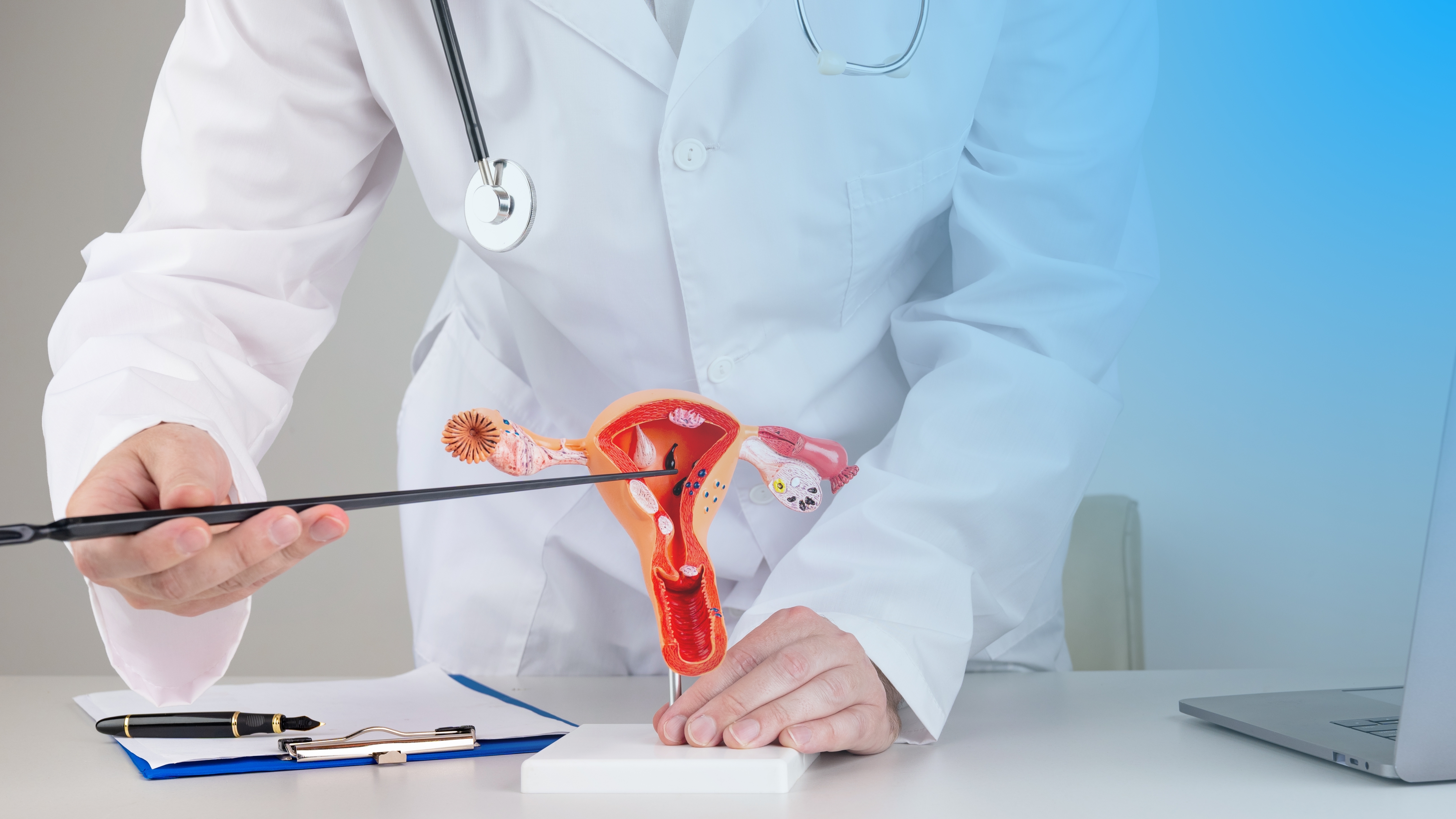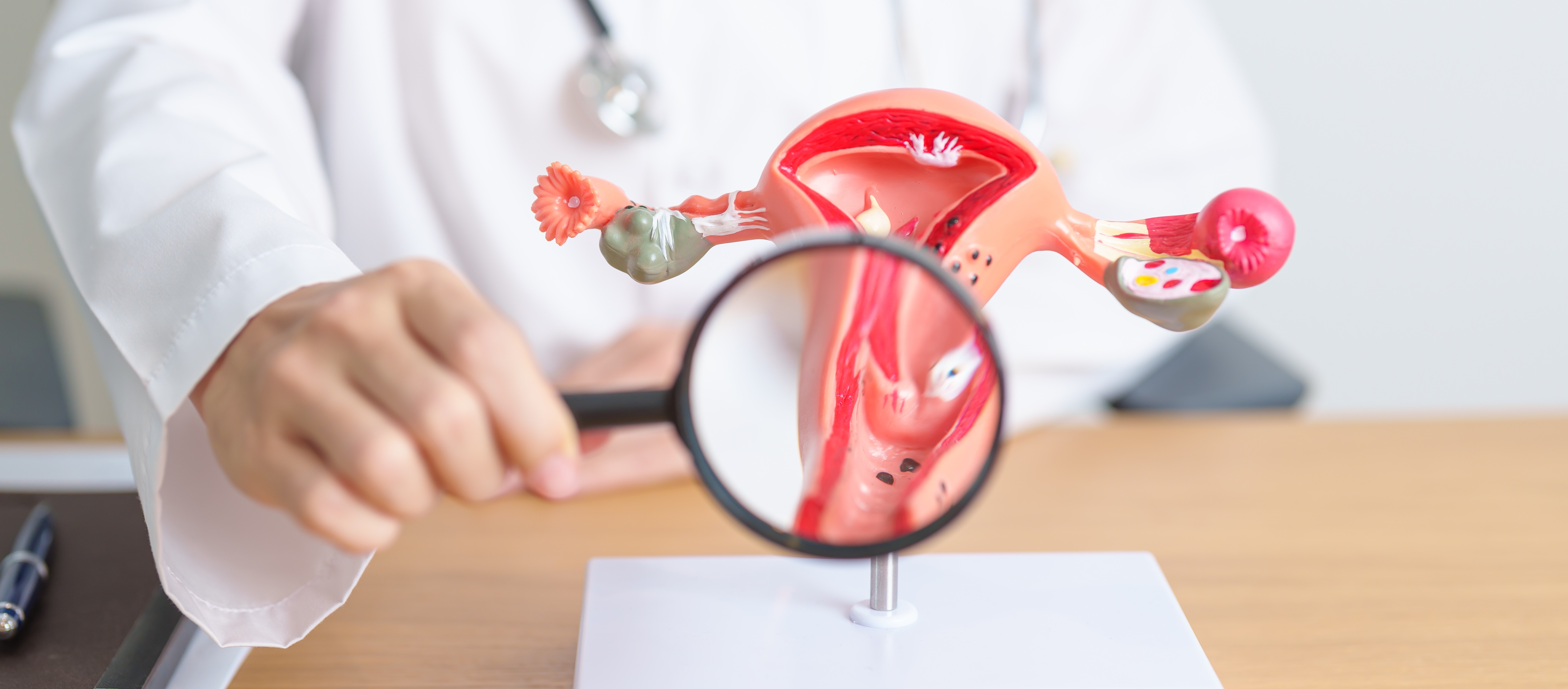Abdominal Pain: Causes, Types & Treatment
Written By: Dr Kote Shamsheer
Updated On:May 10, 2024

What is Abdominal Pain?
When you experience pain anywhere in the belly area, as in between your ribs and pelvis, you’re most probably experiencing abdominal pain. While abdominal pain is commonly referred to as stomach ache, it is important to remember that the abdomen houses your stomach, liver, gallbladder, pancreas, small and large intestines. So, the pain you feel might be related to any of these organs, not necessarily your stomach. Also, discomfort can also be felt in the muscles, skin, and abdominal wall that make up the exterior of your abdomen. Moreover, your chest, pelvis, or back may occasionally be to blame for the pain you experience in your abdomen.
Location of Abdominal Pain
As your abdomen contains numerous organs, your doctor may want to focus on a specific area of your abdomen to determine what kind of discomfort you're experiencing. The abdomen is frequently divided into four quadrants by medical professionals.
-
The upper or lower half: Pain in the upper abdomen occurs above the belly button. If it is below the belly button, then it’s the lower abdomen.
-
The left or right side: Your belly button and sternum form the midline of your abdomen, differentiating your left abdomen from your right one.
Your abdominal pain’s location is a crucial indicator, but it's not the only one. The organs that are affected might be revealed by the location of the pain. For instance, discomfort in your upper right quadrant could be a sign of a liver or gallbladder issue. However, your healthcare professional will also want to learn more about your pain's nature, frequency, and intensity. This will provide them with further information on the potential nature of your ailment.
Causes of Abdominal Pain
Causes of abdominal pain vary, depending on different factors. Some common causes include irritable bowel syndrome, constipation, peptic ulcer, pancreatitis, diverticulitis, gall stones and kidney stones.
Other potential causes may include the following:
- Cancer (pancreatic, stomach, or liver)
-
Celiac disease
-
Crohn’s disease or ulcerative colitis
-
Ectopic pregnancy
-
Fecal impaction
-
Food allergies
-
Food poisoning
-
Gas
-
Gastritis
-
Indigestion
-
Intestinal obstruction
-
Lactose intolerance
-
Menstrual cramps
-
Stomach virus
-
Strained or pulled abdominal muscle
The following causes may result in severe pain that Requires immediate attention:
-
Stomach or intestinal perforation
-
Torsion of an ovary or testicle
Symptoms of Abdominal Pain
Symptoms of abdominal pain that requires attention include the following:
-
Blood in stool
-
Fever
-
Hematemesis or blood in vomit
-
Prolonged dizziness or nausea
-
Eyes or skin that have a yellow tint
-
Abdominal swelling or intense tenderness
-
Having trouble breathing
When to see a doctor for Abdominal Pain?
Mild abdominal pain may go away on its own and without the need for treatment. For example, if you are bloated, then things would need to take their course before you feel better.
Nonetheless, in some instances, abdominal pain might need a visit to the doctor.
If the pain is so intense that you can't sit still or have to curl up into a ball to be comfortable, or if you experience any of the symptoms mentioned above.
Persistent abdominal pain however is not to be neglected. Please come and see your doctor.
Abdominal Pain Risk Factors
You are more likely to experience abdominal pain if you have immune system-weakening conditions, such diabetes, organ transplant, chemotherapy, AIDS, or sickle cell anemia.
Also, you might be at higher risk of experience abdominal pain if you
-
Are of older age
-
Have had abdominal surgery before
-
Have a history of digestive problems
-
Have been exposed to a stomach virus
Abdominal Pain Complications
Changes in dietary habits and psychological discomfort are only two of the detrimental implications that come along with chronic abdominal pain. For instance, people with IBS are more likely to experience mood disorders including anxiety and despair.
Moreover, the likelihood of structural damage to the digestive tract from infection, cancer and its therapies, and irritable bowel syndrome are some of the dangerous complications that can result from many of the underlying disorders that cause stomach pain.
Abdominal Pain Diagnosis
A set of tests and an open discussion about your symptoms with your doctor can help determine the source of your abdominal discomfort. Your doctor will do a physical examination before recommending tests. Checking for soreness and edema involves gently pushing on several parts of your abdomen.
This information will aid your doctor in deciding which tests to order while taking the intensity and location of the discomfort in the abdomen into account.
To view the abdomen's organs, tissues, and other structures in depth, imaging procedures including MRI scans, ultrasounds, and X-rays are employed. Tumors, fractures, ruptures, and inflammation can all be diagnosed with the aid of these tests.
Additional testing consists of the following:
-
Colonoscopy
-
Endoscopy
-
x-ray or CT scan that uses contrast dye to detect any abnormalities
To check for signs of bacterial, viral, and parasite infections, it may also be necessary to take samples of the patient's blood, urine, and feces.
Abdominal Pain Treatment
There are many different reasons and treatments for stomach pain. Surgery could be necessary for some illnesses, such gallstones or appendicitis. Others, including infections or ulcers, may be treated with medication. Moreover, there are occasions when you simply have to endure a kidney stone or a case of stomach sickness until it passes. Finding out the source of your abdominal pain is crucial, especially if it doesn't go away on its own. Keep in mind that even minor conditions might develop into serious ones.
Abdominal Pain Prevention
Not all types of stomach pain may be avoided. However, you can reduce your chance of experiencing stomach pain by
-
consuming a balanced diet,
-
consuming lots of water,
-
working out frequently,
-
and having smaller meals.
Follow the diet your doctor recommends if you have an intestinal disorder, such as Crohn's disease, to reduce discomfort. If you have just eaten, lying down might result in heartburn and discomfort in the abdomen. Try to avoid lying down for at least two hours after eating.
References
Farmer, A. D., & Aziz, Q. (2014). Mechanisms and management of functional abdominal pain. Journal of the royal society of medicine, 107(9), 347-354.
Flasar, M. H., Cross, R., & Goldberg, E. (2006). Acute abdominal pain. Primary Care: Clinics in Office Practice, 33(3), 659-684.
Weydert, J. A., Ball, T. M., & Davis, M. F. (2003). Systematic review of treatments for recurrent abdominal pain. Pediatrics, 111(1), e1-e11.
Meet our doctors from the Gastroenterology department























